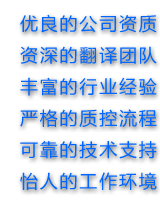Beijing vows cleaner air
| The Beijing government said on Tuesday it will continue its efforts to deal with air pollution in 2013, promising that the amount of major pollutants will decrease by 2 percent. The capital will pay more attention to PM2.5, or airborne particles measuring less than 2.5 micrometers in diameter, to improve air quality and make the city more livable, according to a government work report published at the opening of the annual session of the Beijing Municipal People's Congress, the city's top legislature. To reduce pollution, the heating systems of 44,000 aging single-story houses and coal-burning boilers downtown are to be replaced by clean-energy sources, said Wang Anshun, the city's acting mayor, adding that the government will also take 180,000 old autos off the road. Qian Xiaomeng, a deputy to the congress, spoke highly of the measures and believed the aim of pollution reduction will be achieved. Qian, who works at a city park, added she will advise the government to handle air pollution by expanding green land. The environmental issue also has the attention of another deputy, Wang Zhaoxing, who is from the China Banking Regulatory Commission. "If the city has no fresh air, foreigners and enterprises will not run businesses here," he said. Wang added that he hopes a new regulation on air pollution control, released for the public's comments, will be enforced if passed. However, some experts said the targeted reduction of pollution by 2 percent is conservative and far from enough to solve the city's air pollution problem. Zhao Jingwei, a Beijing lawyer specializing in environmental protection, said the intensity of the pollution could be further reduced. Zhao, who once handled the oil leak in North China's Bohai Bay, said he does not agree with imposing a restriction on automobile use in the city, which he believes will increase car ownership without necessarily reducing pollution. "To make sure they can travel, residents might purchase a second car," he said. "This can only result in the drastic increase of car ownership and a predicament over the lack of parking spaces without reducing the number of vehicles on the road." Car ownership in Tokyo is higher than in Beijing, but the Japanese capital still enjoys better air, which proves that car ownership and air quality is not a causal relationship, he said. In addition, the government cannot solve the problem by imposing more inconvenience on the public, he added. Zhao suggested the government further raise the quality of fuel, and reduce the intensity of lead and other chemicals that might pollute the air through auto exhaust. Zhou Rong, director of the Greenpeace climate and energy project in Beijing, echoed Zhao's sentiments. She said it is important to figure out pollutant emission sources in the capital and make a list of them. "Only by making clear what kinds of pollutants are contributed by a certain industry can we set out a pollution reduction plan," Zhou said. However, the capital has not yet come up with a detailed list of pollution sources, she said. |
——选自:译声北京翻译公司
译声北京翻译公司目前是国内专业的翻译机构之一,译声北京翻译公司秉承“诚信 专业”的服务理念,为国内外客户提供一流翻译服务。了解更多信息:请直接致电:400-600-6870咨询。
- 相关文章
发表评论:

上一篇: 巨屏受热捧 平板手机渐风靡
下一篇: 专利文摘翻译要求












